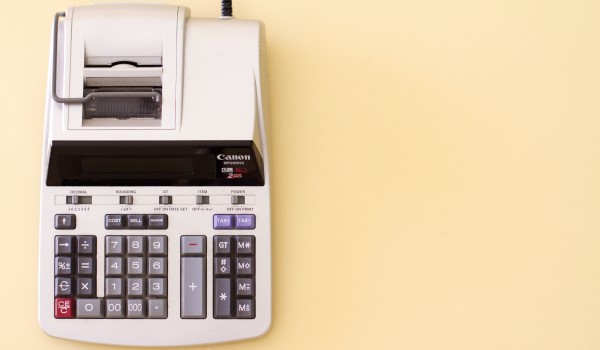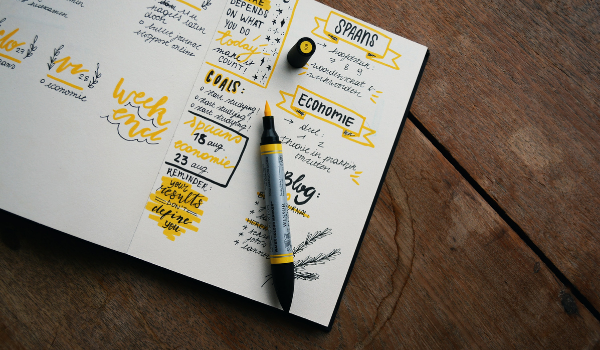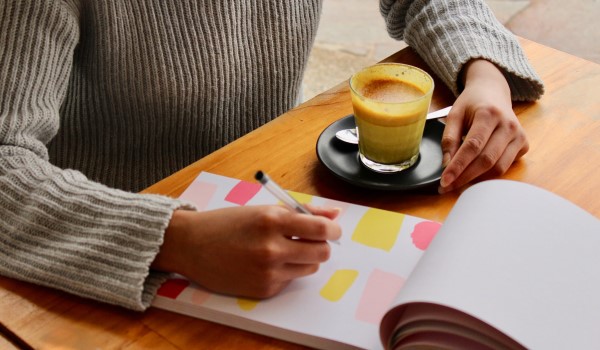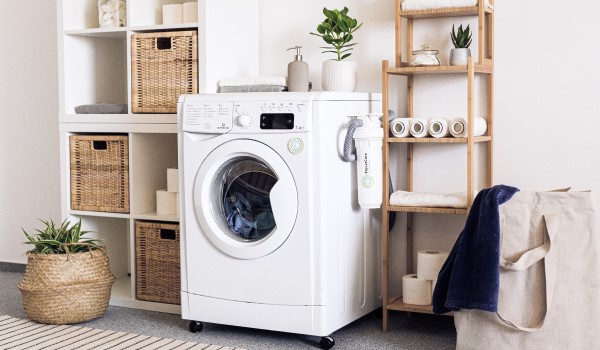Freedom. Flexibility. Personal fulfilment. These are just some of the words that spring to mind when you think about being self-employed. But we’ve got news for you. Being your own boss isn’t just about following your passions and building your own brand. It also means being the boss of your finances. If you’re used to getting a regular paycheck from full-time employment and are planning on going freelance, managing your money can be quite the adjustment. But fear not, we've compiled some money-savvy tips to make the transition a little easier and chatted to freelance writer Victoria Stokes all about how she manages her cash flow.
1. "Setting myself a fixed salary"
"The upside of being self-employed? There’s no cap on what you can earn. The sky’s the limit! The downside? Separating your business finances and personal finances can be tricky and it can be difficult to know how much to pay yourself. What I do is, take some time to tot up my personal expenses (like utility bills, housing costs etc), think about how much I want to contribute to my later life savings, and the amount I'll have to pay in tax. Then, I add in a realistic budget for life’s little pleasures like socialising, eating out, and travelling, and estimate how much I’d like to save. The number we get to at the end is how much I aim to pay myself each month. In an ideal world I'll have some left over to invest back into my business too. You could use either Beehive's downloadable or our online budget planner to help you work this all out as they're handy tools for creating budgets. As for those months, you earn a little extra…"
2. "Popping what’s left over into an emergency fund"
"When you’re self-employed, stashing some cash for a rainy day is even more important, I think. Unlike people on a payroll, we might not have a regular payday at the end of each month. Instead, as self-employed people, we'll have money coming into our accounts in dribs and drabs and our earnings might fluctuate from one week to the next. Sometimes this means the money in our accounts needs to stretch a little further than usual. That’s where a rainy-day fund comes in. I try to top mine up every month and add in a little extra if I have a particularly profitable month. I'm grateful to have the security blanket if my earnings ever take a dip. Choosing a savings account for your personal-rainy day fund could be a great idea too, as you’ll earn a little bit of interest on the money you put away."
Beehive here! Remember, you're not able to open business current or savings accounts with Beehive Money - we're personal savings only so you won't be able to do any transactional business through our app or website. But, this doesn't stop you saving for your personal goals with Beehive Money such as your rainy-day fund as Victoria has mentioned or even for your first home or later life savings with the Lifetime ISA. An account that might work for the rainy-day savings could be a easy access account. With an easy access account you can dip into it anytime you need to, with no penalties to pay.
3. "Preparing myself for tax season"
"Tax season: two words that can strike fear into a self-employed person’s heart - myself included. Fortunately, in my experience, a little forward planning can make the process of filing your tax return less of a nightmare. First things first, rather than scrambling to find the money to pay my tax bill at the last minute, I find that saving a percentage of my earnings into a separate tax pot throughout the year means I'll have it ready to go when I need it."
Beehive here again, we think that a regular saver could be an account to consider for this if the end date of the term works for your tax year as you can pop a maximum amount into it each month, for example up to £500, and little and often can mean your tax pot will be ready by the time April 5th rolls around.
4. "Thinking about my future"
"I know what you’re thinking: it’s ages until we retire. It’s not something we need to start thinking about just yet, right? Wrong. As a self-employed person, we don’t have the luxury of a workplace pension scheme so there isn't anyone saving for our futures for us. Statistics suggest just 31% of self-employed people are saving into a pension and 67% say they’re worried about saving for later life."
Beehive back again. If this is you, don’t fret: it’s never too late to start building your later life savings pot and there are of options to choose from that include personal pensions and Lifetime ISAs. Check out our article on being pension savvy if you're interested in reading more about that route but remember, there are so many different options for personal pensions it could be best to speak to a professional financial adviser before making a decision.
That's a wrap
Victoria concludes, "Managing your money as a self-employed person can take a little extra planning and forethought, but by keeping an emergency fund for quiet times, paying yourself a fixed salary, and putting some pennies aside to pay your taxes and top up your pension, you can keep on top of it. Just like you’re in control of your business, with a little know-how, you can be in control of your finances too."









